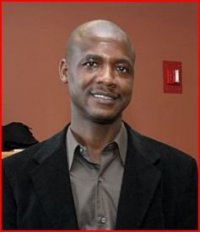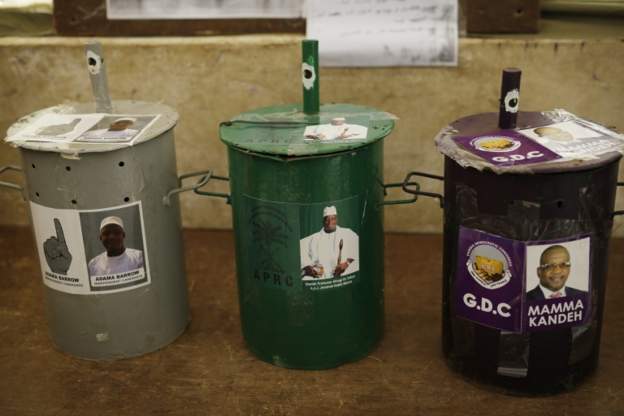
(JollofNews) – In today’s highly charged political atmosphere, with so much attention focused on our disagreements, it’s easy to lose sight of Gambia’s’ shared values. One of those is our belief that free speech means everyone’s voice should be heard and that every eligible voter should participate in elections that are fair, secure, and accessible, with every vote counted as cast.
The principle of one person, one vote – that every person’s vote should have equal weight is the foundation of our democracy!! It means legislative districts need to be divided according to population, so that each person (and each interest) has an equal amount of representation in parliament. Such high-minded aspiration is undermined by blatant gerrymandering, which manipulates the boundaries of (an electoral constituency) to favor one party or class, create partisan advantaged districts.
The intended result of partisan gerrymandering is misrepresentation of the public. The party controlling the redistricting artificially inflates the number of seats it gets. In some cases, this distortion of representation is so gross that it allows a party that gets a minority of the votes to win most the seats – a clear violation of the basic principles of democracy and majority rule.
For example, in five electoral constituency in Foni in the West Coast administrative region with a total voter population of 33,803 has five parliamentarians and in Kombo South administrative area with a total voter population of 45,152 has one parliamentarian, Bussumbala constituency voter population of 36,602 and Sere Kunda West in the Kanifing administrative area with 46,502 population each had only one representative. Banjul Administrative area with a voter population of 22,731 has three parliamentarians. How can Banjul Administrative area and Foni administrative have more representatives than more densely populated constituencies.
Gerrymandering is a form of political subterfuge. It stifles real political debate and deprives citizens of meaningful choices: Proportional representation is the principle that a legislature reflects all the voters who elect them. Like-minded voters should be able to elect representatives in proportion to their number.
Replacing the current winner-takes-all parliamentary elections with a form of proportional representation would create a legislature that better represents the population, while virtually eliminating gerrymandering.
Voting to “win elections” works in a democracy, but unfortunately Banjul Administrative area and in the Foni and some parts of the the West Coast Administrative areas is not fair representative democracy. It is a “gerrymockeracy” because gerrymandering makes a mockery of the principle of “one person, one vote.”
Gerrymandering eliminated the vote of almost half the voters. The other half played with a stacked deck: The party that drew the legislative districts won disproportionate representation.
We cannot “win” elections and “do something about the wrongs” we perceive until gerrymandering is eliminated. Let’s tell our legislators!
Gerrymandering is the process through which legislative districts are crafted by sorting and grouping voters in ways that advantage or weaken one political party over the other…. And it’s because of gerrymandering that major cities have not enjoyed much political clout within the nation.
It has become painfully clear in recent years that partisan gerrymandering is one of the worst illnesses of democracy in The Gambia. Although the purpose of redistricting was to ensure “fair and effective representation for all citizens,” legislators often use the process to lock the minority party out of power.
Politicians deploy partisan gerrymandering to make it harder for their opponents win elections, thus creating one-party rule and, arguably, greater polarization. That’s bad for the body politic and a clear contravention of the spirit of the Constitution. Unless we have electoral reform, gerrymandering will continue to plague the country.
We must demand electoral reform to change the single plurality, “winner take all” “first past the post” electoral systems, structured within single-member districts (which is exactly what we have) that is susceptible to gerrymandering. This is a well-established principle in political science.
Conversely, double-ballot majority system with proportional representation favors a multi-party system.
This is no simple task, but we must demand electoral reform. Without it, I fear our democracy will corrupt itself.
By Alagi Yorro Jallow
The author is founder and former managing editor of The Independent, the Gambia’s only private newspaper before it was banned by the government in 2005. He was a Reagan-Fascell Democracy Fellow at the National Endowment for Democracy, a 2007 Nieman fellow and is the author of Delayed Democracy: How Press Freedom Collapsed in Gambia published in 2013.






You are absolutely right Yorro; Now we see the election results Parliament is once again lob sided;
Time for proportional representation… Don’t you think ?
The opening sentence of this piece,
“In today’s highly charged political atmosphere”,
is with respect very inaccurate.
There is in Gambia today a very peaceful “atmosphere” where it is accepted by all and sundry (except GMC’s Mama Kandeh) that an exceptionally peaceful and fair election has taken place. The USA was “highly charged” after Trump “won” with THREE MILLION LESS votes than Hilary Clinton. But in The Gambia’s Election the UDP got the giant share of the votes. A fairly conducted election has led to a fair result and that has led to continuing peace and stability in The Gambia. I don’t think anyone can argue about the PEACEFUL “atmosphere” in the country.
It seems to me that “Free Speech” and “one-person one-vote” are deliberately confused here so that a charge of “blatant gerrymandering” can be made. That seems to me, at the very least dubious.
No one doubts that there is FULL “Free Speech” in Barrow’s Gambia today, and no one doubts that in today’s Gambia “one-person one-vote” is FULLY respected – otherwise all of the FONIS would not have returned their 5 MPs for the departed dictator’s APRC party (is that what is bugging the writer?).
“Gerrymandering” is a serious CRIMINAL charge and here in UK the leading case is PORTER v MAGILL (where I think a fine of £10 million was handed out to Lady Porter).
Clearly, Barrow and his government have not done a single thing to be acussed of “blatant gerrymandering” since they came into office – not a single thing. Neither am I aware of Jammeh changing the constituency boundaries to benefit his party (he simply made sure that there was no “level playing field” by monopolising the State Machinery to ensure his party won). Of course, Jammeh and Jawara’s Government may not have done enough to change the constituency boundaries to reflect the demographic changes over the decades, but that is not the same as “sorting and grouping voters”:-
This statement is simply wrong as far as Gambia is concerned: “Gerrymandering is the process through which legislative districts are crafted by sorting and grouping voters in ways that advantage or weaken one political party over the other…. And it’s because of gerrymandering that major cities have not enjoyed much political clout within the nation.”
In The Gambia, the change in the size of constituencies happened, NOT because of the politicians “gerrymandering”, but because PEOPLE MOVED from the hinterland to the cities. “approx 7,000 voters per MP in the Fonis, but 45,000 voters per MP in Kombo South”, claims the writer. Taking that at face value, the “lopsidedness” did NOT happen because of “gerrymandering” by politicians, but because hnudreds of thousand of Gambians moved in the last three decades from the hinterland (like the Fonis and Basse) to the Kombos – thus swelling the population of the Kombos … and creating the “lopsidedness”. It has nothing to do with politicians “gerrymandering”. The politicians could have done something about it, but the fact that they did not does not amount to “gerrymandering”.
Gambia is an “Anglophone country and “First Past the Post” or “Winner Take All” is the democratic system in both the USA and the UK. The idea is that this provides a more STABLE government than the “proportional representation” system – which at its worst has produced something like 30 governments in Italy in the last 40 years. The downside of the proportional representation system are many but two are obvious: 1. The voter does not elect his MP – the elector votes for a party. 2. The party then choses the MP when seats are shared out according to the national vote between the parties. I am sorry, but the African electorate wants to know the person they are voting for – preferably local and one of them, chosen by them … not by the party leaders in the big city. Voting for a party rather than an individual may have the advantage of focussing the mind on the issues rather than the individual, but as Halifa Sallah says often “we have a long way to go before we get there”.
CLEARLY, THERE IS A STRONG CASE TO BE MADE FOR CREATING MORE CONSTITUENCIES IN THE KOMBOS – AND GENERALLY BALANCING THINGS OUT BY REDUCING THE NUMBER OF MPs IN BANJUL AND FONIS WHERE THE POPULATION HAS DECLINED OVER THE YEARS. THERE IS NO CASE FOR ABANDONING THE FIRST-PAST-THE-POST SYSTEM.
Politicians in power are always reluctant to change a system that has benefitted them and brought them to power. A poorly made case for change does not help convince them.
This is the meaning of “gerrymandering” according to Wikipedia https://en.m.wikipedia.org/wiki/Gerrymandering
Seen it Grim Reaper, thanks. Just makes my point and adds “Gerrymandering should not be confused with malapportionment, whereby the number of eligible voters per elected representative can vary widely without relation to how the boundaries are drawn”.
I think Mr Halake in his long winded reply only serve to confirm what Yorro is stating.
I don’t think creating More constituencies will alter the demographic to be fairer; But proportional representation will.
But that is only my opinion;
To change a former one party state for another albeit a much more user friendly one is no guarantee that all new policies will be in the best interest of the people. You see Democracy only works well when the is a strong opposition.
Mr. Scales, I posted this to assist you a few days ago, but you must have missed it:-
Dormu Rewwum Gambia (aka Luntango Suun Gann Gi)
APRIL 8, 2017 AT 2:05 AM
Mr. Scales asks: “But who am I to judge”?
Mr. Scales, I understand and sympathise with your difficulty, but I cannot help you. I refer you to a distinguished Englishman named Richard Dowden, Director of the Royal African Society here in London.
More travelled around Africa than any living man I know, Mr. Dowden tells this story of his time in Ethiopia:
Dowden: “Gondar, incredible. The civilisation explains why Ethiopians think they are the equal of any whiteman”.
Roger (English Ethiopia Expert): “No they don’t think they are equal. They think they are superior.”
Haile (the Ethiopian Guide): “We don’t ‘think’; we know”.
Come to think of it, Mr. Scales, you and I have had this discussion before and, rather amusingly, you called me a “racist” – which brought a twinkle to my eye.
But I am sure that you will find my Gambian in-laws, such as Bax and Andrew (lol!) far more accommodating.
I think I just farted.
Dear Mr Halake, I am so sorry you are in poor health and nothing to look forward to but a small pension. I am sure the NHS are taking good care of you and the DWP will assist where necessary.
If not please let me know and I will do what I can.
Chin up !!!